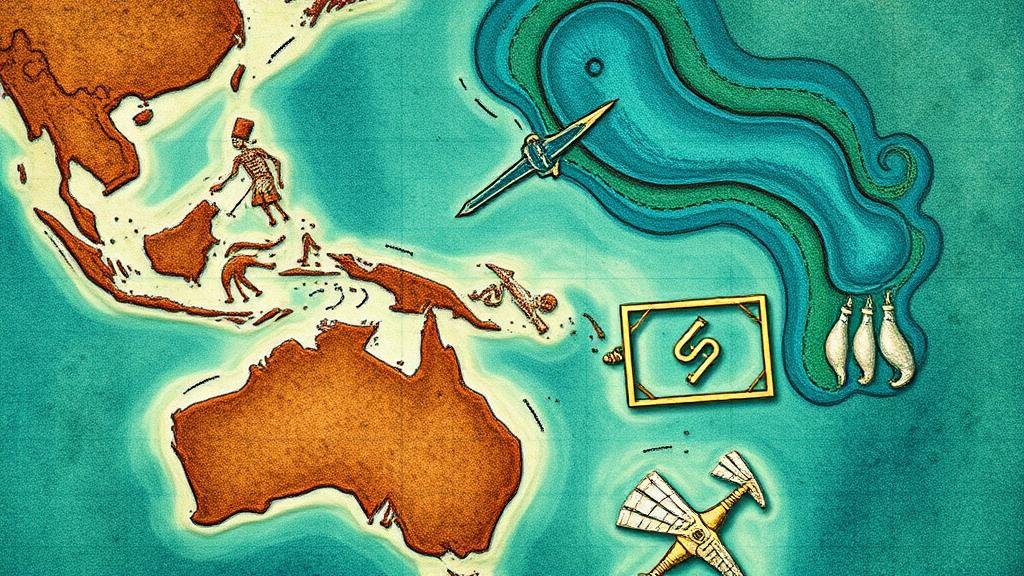Searching for evidence of ancient maritime cultures that explored the Pacific.
Searching for Evidence of Ancient Maritime Cultures that Explored the Pacific
The Pacific Ocean, known for its vastness and mystery, has long fascinated scholars and adventurers alike. The ancient maritime cultures that inhabited its shores were exceptional navigators and traders, leaving indelible marks on the islands they explored. This article delves into the evidence of these cultures, presenting archaeological findings, linguistic studies, and their impacts on modern society.
The Navigators of the Pacific: An Overview
Long before the advent of modern navigation tools, Polynesian navigators exhibited remarkable expertise in oceanic exploration. By utilizing the stars, ocean currents, and the behavior of marine life, they embarked on voyages across thousands of miles. The Polynesians are believed to have started their migrations around 2000 BCE, with significant settlement events occurring between 1000 BCE and 1300 CE.
Archaeological Evidence of Maritime Cultures
Archaeologists have unearthed numerous artifacts that showcase the sailing prowess of ancient Pacific cultures. A standout example is the discovery of the Hokulea, a traditional Polynesian voyaging canoe, which serves as a modern testament to ancient nautical skills. original Hokulea, built in 1975, replicates the design and techniques used by ancient Polynesians.
Also, the archaeological site at Lapita in New Caledonia (circa 1600 BCE) has provided vital evidence of pottery clearly exhibiting intricate designs and a social structure that relied on maritime resources. This indicates that ancient inhabitants already had established trade networks, allowing them to exchange goods across vast distances.
Linguistic Studies and Cultural Connections
Language studies further illuminate the voyages and interactions of ancient maritime cultures. The concept of “proto-Oceanic†— the common ancestor of many Polynesian languages — suggests that migrations spread linguistic traits across the Pacific. Linguists found similarities in words related to navigation, weather patterns, and ocean fauna, which point to a shared knowledge base among seafaring cultures.
- For example, the term for “ocean†is remarkably similar across several Polynesian languages, indicating a shared conceptual understanding.
- Studies show that the navigational terms used among cultures, like “wave†and “wind direction,†exhibit a linguistic unity that reinforces their interconnectedness.
Modern Implications of Ancient Navigational Techniques
Today, the insights gained from ancient maritime cultures have practical applications. The revival of traditional navigation techniques is seen in initiatives like Hokule’a’s global voyage, which promotes traditional knowledge regarding climate and ocean patterns. This effort not only educates modern society about sustainable practices but also fosters a deeper appreciation of Indigenous maritime heritage.
Also, modern scientists are harnessing traditional knowledge systems to combat challenges such as climate change. Indigenous ecological practices provide valuable local insights on sustainable fishing and marine resource management.
Challenges in Uncovering Ancient Maritime Cultures
Researching ancient maritime cultures presents several challenges. The vastness of the Pacific, combined with a scarcity of written records, demands innovative archaeological approaches. Underwater archaeology is gaining traction; for instance, explorations around the Mariana Islands have uncovered submerged ancient pathways that indicate once-navigable waters.
Also, many artifacts are at risk due to climate change and rising sea levels, which threaten coastal archaeological sites. This calls for urgent preservation efforts and collaborative research that includes local communities protect these cultural legacies.
Conclusion: The Legacy of Ancient Pacific Cultures
The exploration of the Pacific by ancient maritime cultures is a testament to human ingenuity and adaptability. Through archaeology, linguistics, and modern applications of traditional knowledge, we continue to uncover the rich stories of these early voyagers. As we protect and learn from their legacies, we not only honor their achievements but also better prepare for the challenges of our future.
In summary, the search for evidence of ancient maritime cultures in the Pacific reveals the depth of human exploration and cultural exchange. e insights encourage a reassessment of our relationship with the ocean and the importance of preserving both its history and its ecosystems.



